 This is the first in a series of posts on Booby Traps,™ made possible by the generous support of Motherlove Herbal Company.
This is the first in a series of posts on Booby Traps,™ made possible by the generous support of Motherlove Herbal Company.
Oh, those first visits to the OB after you found out you were pregnant.
You remember, right? The crinkle of the paper gown, the nervous anticipation over hearing the heartbeat, encountering your first Booby Trap™…
Wait, what?
You probably didn’t know it then, but one of the first breastfeeding problems you were likely to encounter appears during the early days of your pregnancy. That’s when many of us run headlong into the lack of education among obstetricians about breastfeeding.
It’s in these early days that we start to make plans for how we’re going to feed our babies. And research has also shown that when OBs discuss breastfeeding prenatally, more mothers breastfeed. (In fact, one study found that when women are encouraged to breastfeed by their doctors prenatally, 75% do. When they aren’t, only 43% do.)
The problem is that, like the other providers you see on your journey, obstetricians aren’t given much training in breastfeeding. And what they do get isn’t always up to date or evidence-based.
A few sobering facts:
- A 2003 study of obstetricians in one state found that “seventy percent of the respondents were not taught lactation management in medical school or residency.”
- An older national assessment of obstetrics residents found that “between 18% and 54% of residents and practicing physicians lacked knowledge of a health benefit of breast feeding and many provided incorrect advice to mothers with common breast feeding problems.”
- A 2011 study which looked at the five major textbooks used to teach OBs about breastfeeding found that three out of five didn’t even mention that breastfeeding is recommended for at least the first year of life, or that exclusive breastfeeding is recommended for the first six months. Three out of five failed to provide any information about the effects of supplementation on breastfeeding.
The tricky thing is that this Booby Trap™ can be invisible until you run headlong into it. You might not think you’ve been Booby Trapped™ until you realize that your OB hasn’t ever mentioned breastfeeding at your visits, or that he doesn’t know any of the local resources for breastfeeding help, or that he doesn’t know a good latch from a hole in the wall. (In my next post I’ll talk about what your obstetrician should do prenatally to support you in breastfeeding.)
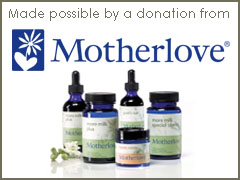 Of course, many obstetricians are wonderful at supporting breastfeeding. But this may be more in spite of their training than because of it. A good doctor knows what she doesn’t know, and tries to fill in the gaps in her knowledge to help her patients. Many have, and you may be lucky enough to have found one. We hope so.
Of course, many obstetricians are wonderful at supporting breastfeeding. But this may be more in spite of their training than because of it. A good doctor knows what she doesn’t know, and tries to fill in the gaps in her knowledge to help her patients. Many have, and you may be lucky enough to have found one. We hope so.
So how do you avoid Booby Traps™ at the OB? Here’s a list of things you can do.
1. Listen. First, if you’re past the halfway mark of your pregnancy and your provider hasn’t even mentioned breastfeeding, consider yourself warned. Remember that this Booby Trap™ may be more apparent in what doesn’t happen at your visits than what does.
2. Ask. Ask your obstetrician what kind of training she has had on breastfeeding. Ask what things she’ll do prenatally to get you ready for breastfeeding, and how she’ll support you around the birth and immediate newborn period to support breastfeeding. And see if she knows what kinds of labor and birth experiences give you the best chances for a good start with breastfeeding (I’ll be writing more about this soon).
3. Look. See formula company materials on the walls, on reception counters, and waiting room tables? That’s a clue as to how breastfeeding-friendly your provider is.
4. Speak. If you aren’t happy with how things are going - you haven’t heard anything about breastfeeding, you see lots of formula promotional material in the office, you aren’t sure if your provider knows much about breastfeeding - speak up. Tell him that breastfeeding is important to you, and that you aren’t happy with what you see. Give him an opportunity to convince you that you’ll get great breastfeeding care.
5. But if you aren’t convinced, Run, don’t walk. If after raising some concerns you aren’t reassured, listen to your gut and take your business elsewhere. Remember, you are a customer of a business, and you and your baby deserve the best care you can find. We know you’re worth it, Babe.
This post is made possible by the generous support of Motherlove Herbal Company.



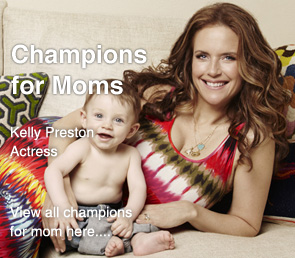
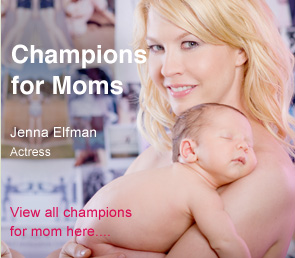
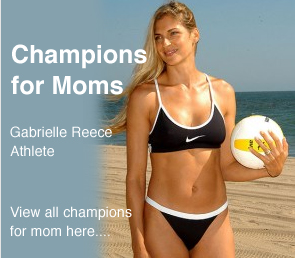
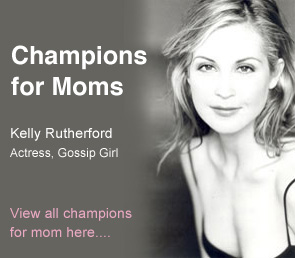
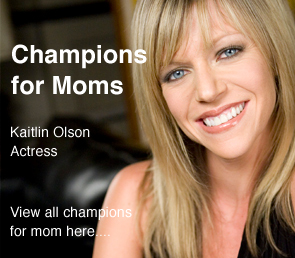
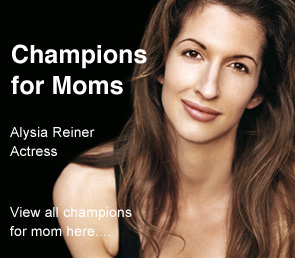
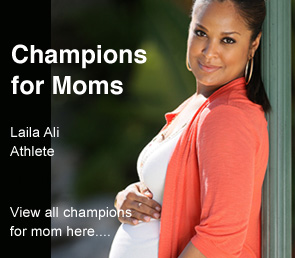
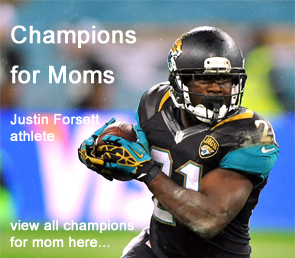
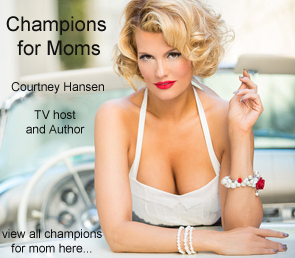
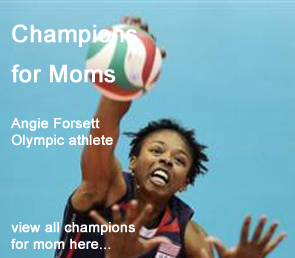
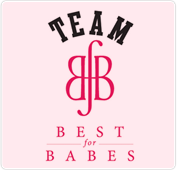

One way to have a great start with breastfeeding is to have your baby at home with a trained midwife. Midwives almost universally support breastfeeding- some even requiring it for an amount of time after birth to support mom’s recovery from birth- and they are often available to give moms great one on one help if needed. Support your local midwife! They are definetly ‘baby friendly!’
angie- that is essentially what I was going to say I totally agree. Hire a caregiver that’s well trained in supporting you in your breastfeeding goals. Great series- thanks, BfB!
I totally agree. Hire a caregiver that’s well trained in supporting you in your breastfeeding goals. Great series- thanks, BfB!
Wow, you just saved me lots of typing. 😉
Seriously, I’ve had all four of my babies at home and found this to be true. Though only one of my midwives required the commitment to breastfeeding.
Agreed Angie! But so many people will think we are both crazy.
I don’t think either of you is crazy! Couldn’t agree more!
Coming from my perspective, having had 2 of my 3 babies at home, and now a midwife in training myself, I don’t think youre crazy!
The thing is I don’t think you’re crazy now, but when I was first pregnant with my first, I (and certainly my husband and inlaws) would have. There are HUGE cultural hurdles to be overcome on this one, unfortunately :-(.
Now that I think about it, my OB never mentioned anything about breastfeeding while I was pregnant. It was never discussed. I was already determined to breastfeed my son regardless of what my OB had to say about it. So I got educated on my own and went on to have a very successful breastfeeding relationship. But I know that many women rely on their OB to essentially train them on what to do. I really wish more OBs encouraged their patients to breastfeed, and then made sure they were equipped with contact info for where to get help if needed.
What can we do to spread the word to our OB’s that this is important? I’m part of a coalition and I want to approach this with our local doctors….without offending them because we need them to work with us.
Melissa,
Great question! I’m part of a local coalition, so I understand that it can be tricky to advocate without alienating people in positions to improve things.
In this series I’m hoping to write about what individual moms can do get the best care, but also what we can do collectively to advocate for practices that support breastfeeding. I’m also working on some guest posts from OBs and other providers, and this is a great question to put to them.
So stay tuned!
Tanya
I never even thought to go to my OB for support. I talked to the pediatrician since it was a baby issue.
I dont recall either of the OBs I went to asking if I was planning on breastfeeding. Both gave me a bag of marketing materials from several companies including 3 samples of formula each. I never thought twice about asking if my docs or my baby’s future pediatrician were pro breastfeeding. Since having the little guy, we switched doctors and my first question was if the docs I had in mind were pro breastfeeding. As soon as I asked, I was transferred to two lactation nurses who are available M-F during business hours to help with any feeding issues. I never even knew that this was a free service. Its so amazing that these resources are not advertised…Great article!
I totally agree with Angie. I had my first son under the care of midwives at a free-standing birth center and my second with a different midwifery practice at home. In both cases, we discussed breastfeeding often during prenatal appointments. I got such great care and support after my first was born with everything from a proper latch to the range of holds and positions that I had a great breastfeeding relationship with my first son that lasted 27 months and needed no help at all with number 2.
I did just have my pediatrician, who’s otherwise very knowledgeable, tell me that I need to start feeding my 7 month old more solids because he’s gone down on the growth charts for weight since his last visit. I know from my own reading and my experience with my first son that breastfed babies tend to gain weight faster than formula fed babies through about three or four months, then slow down beyond that. When I got home from that appointment, I looked up the WHO growth charts, which are based on breastfed babies, and he’s right in the middle, 50th percentile. My ped must be using the old 1977 charts based heavily on formula fed babies. I’m taking a copy of the chart to our next appointment and we’ll see what she says. But, needless to say, both OBs and peds need to be better educated about breastfeeding.
Forgot to add that I was with an OB until 20 weeks with my first son and never heard a peep from her about breastfeeding. All she told me was to take prenatal vitamins and stop eating fish.
I am so lucky. My Ob was my OB with my last child. I also know she pumped at work for a long time with her youngest. I told her I was planning to breastfeed and she told me that we would make sure my high blood pressure meds wouldn’t mess with breastfeeding. I know she knows I will breastfed and she totally supports me. She has no posters supporting formula in her office. Glad to have a supportive OB!
Kelly,
That’s wonderful. I think in an upcoming post I’m going to use some of these comments to highlight how supportive some providers are.
Tanya
I recently wrote about this on my site, and how the lack of prenatal breastfeeding knowledge shared between doctors and patients is just pathetic. If women knew that their bodies were preparing to breastfeed in the start of the second trimester by making colostrum, then maybe they wouldn’t be fearful that they don’t have enough milk in those early days - it’s been there for months! Or if they knew that babies are born with a high suck need to help their bodies make more milk and ensure long-term supply, then maybe they would be able to make it through those first two weeks when everything can seem so exhausting. I could go on and on…
I look forward to this new series - great topic!
I wish the American College of Obstetricians and Gynecologists (ACOG) did more to support female OB’s who want to breastfeed. Some OB’s have very short maternity leaves and don’t have the support to breastfeed very much or very long. I think if more female OB’s had what they needed to meet their own breastfeeding goals, they might promote breastfeeding more. I find that women who get through the learning curve and find breastfeeding to be rewarding and enjoyable are more likely to promote breastfeeding than women who stopped breastfeeding while they were still on the learning curve. If breastfeeding became part of the ACOG culture, it would also help. OB’s need to receive more training and education about breastfeeding so that male and female OB’s have a better understanding of why breastfeeding is a public health priority.
Continued . . . I wonder what percentage of female OB’s breastfeed after birth, at six months, and at twelve months. I think female and male OB’s should support and promote breastfeeding regardless of their personal experience, and I think it can only help if a higher percentage of health care providers are able to meet their own breastfeeding goals. I personally know OB’s and people who work in OB offices who had little to no support to pump after they returned to work. The culture of hospitals and doctor’s offices needs to value and support breastfeeding on all levels.
Hi Lera,
Here’s a recent study of 50 physicians in Maryland, which looked at physicians’ intentions vs. their experiences:
Our data showed that while physician mothers intended to breastfeed 64% of the infants for at least 12 months and while 97% of infants were breastfed at birth, only 41% continued to receive breastmilk at 12 months. This discrepancy suggests that work-related factors may influence physician mothers’ breastfeeding behavior and might have a larger impact than these mothers’ education and intentions on breastfeeding duration. (Abstract: http://www.liebertonline.com/doi/abs/10.1089/bfm.2009.0090)
So, you’re absolutely right, physicians get Booby Trapped, too!
Tanya
I’ve been to many an OB office where there were raffles sponsored by formula companies, gift bags with formula inside given out during prenatal visits and a real lack of a knowledge to the functional aspects of breasts!
I also had a midwife help me get my 2 day old to latch by crawling in a bed next to me, putting an arm around me and from that angle helped me self express colostrom which helped my baby find her own way to nurse.
There are good providers out there…thanks for spreading the word about the booby traps that get in the way!!!
Jodi,
There certainly are great providers out there, and your experience really shows the difference!
Tanya
My OB asked about breastfeeding and some birth preferences at my very first appointment! She also has a sign in her office waiting room that says something like, “Breastfeeding is welcome here. Let us know if you prefer a private area.” This is the same OB who congratulated me when I first came to her and mentioned I was still BFing my toddler. I know that she is a rare gem, though. I wish more doctors in general were as pro-breastfeeding as she is. After all, it is pro-good health for everyone involved.